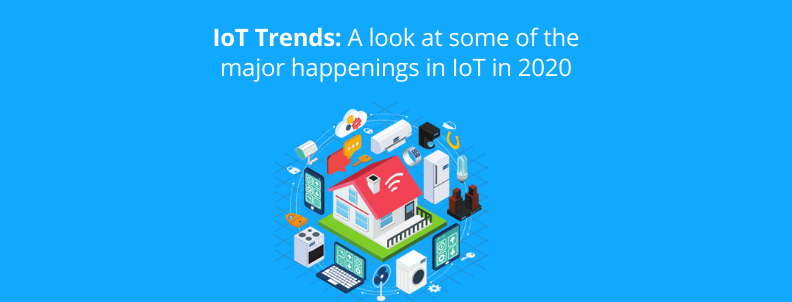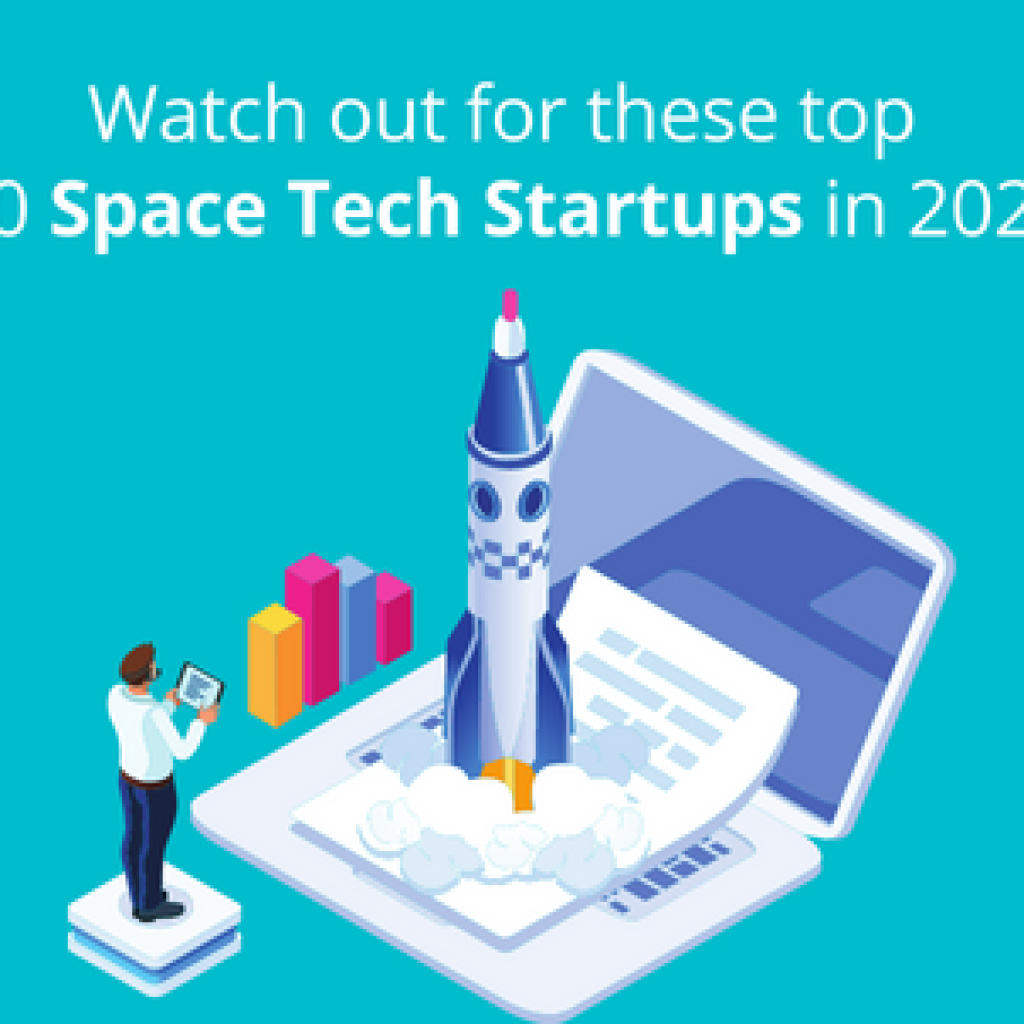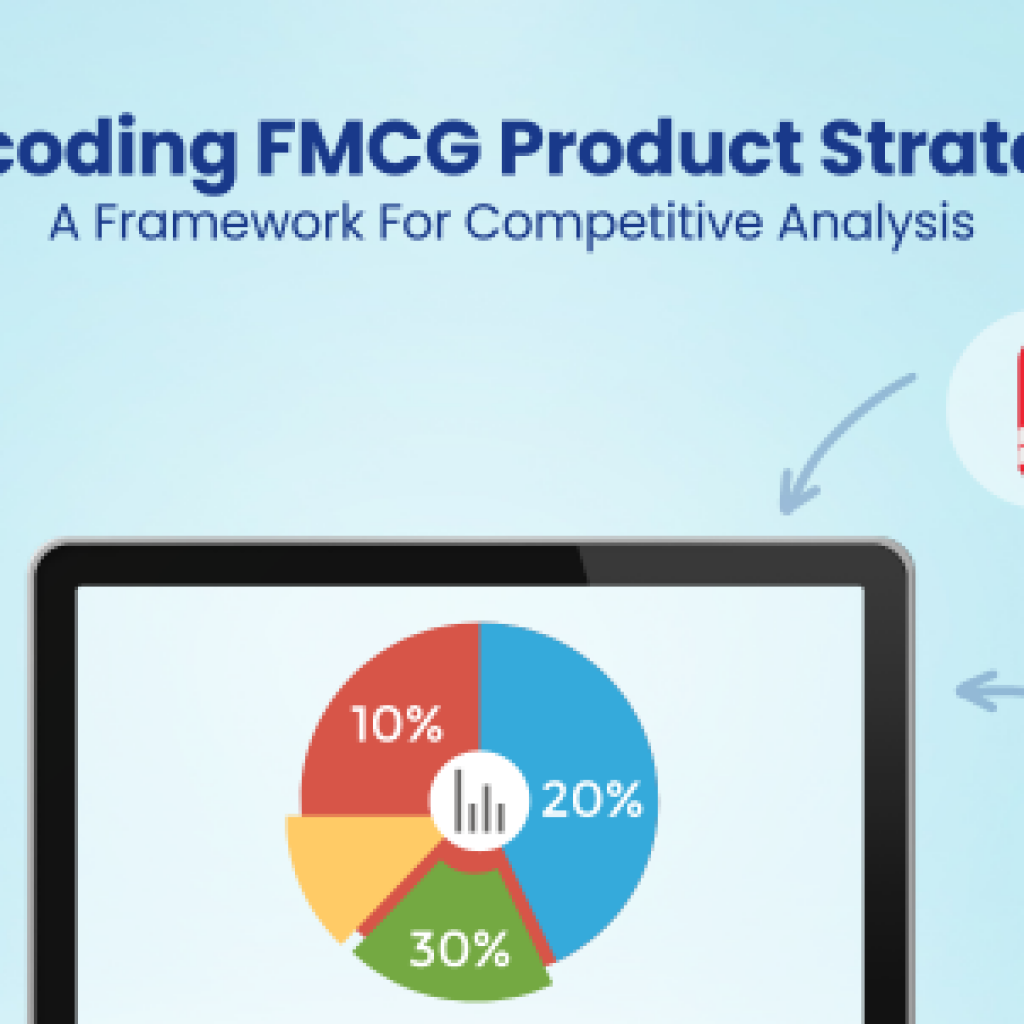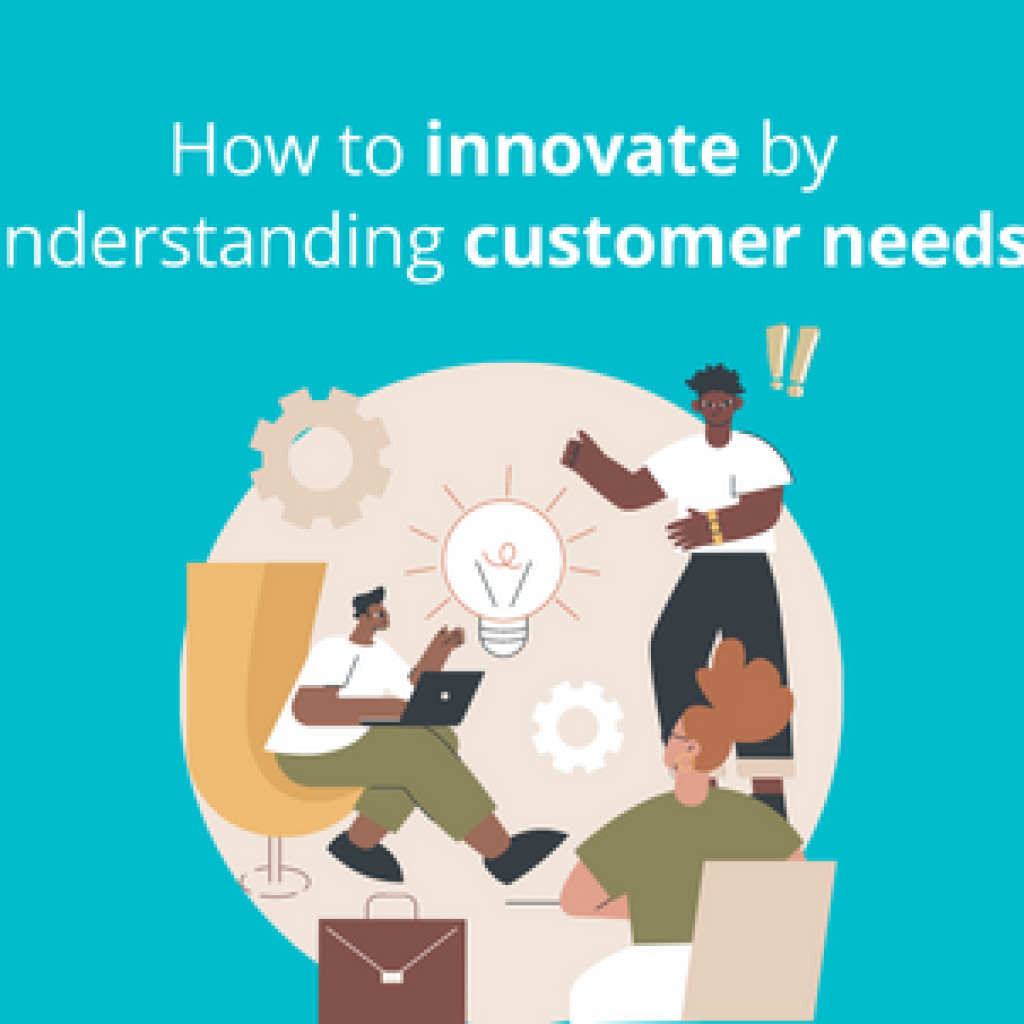Being a research company, we love exploring technology trends and digging up insights related to those technologies, and lately, we have been fascinated with telecom technologies, and in extension, IoT. In our quest to explore the landscape of IoT technology, we tried to cover three different aspects, i.e. – market landscape, investment landscape, and technology landscape.
In our first article, we covered top IoT companies and startups and what position they hold in the IoT value chain. We also sought answers to questions like — What kind of IoT tech is Microsoft working on, where is IBM investing their R&D in IoT, and which are the top emerging companies in this industrial revolution.
In this report, we will discuss the major developments that took place in IoT in 2020. Despite the global pandemic, the IoT industry has witnessed some remarkable innovations, acquisitions, investments, and new challenges to overcome.

Source: IoT Analytics
Let’s start with the most innovative IoT solution of 2020.
1. IoT Innovation of the Year, Sierra Wireless, Octave
Octave by Sierra Wireless is an all-in-one edge-to-cloud solution for Industrial IoT that offers agility to businesses for data-driven digital transformation. The tool is capable of delivering a new way for industrial enterprises to access machine data in the cloud.
Octave avoids the complex integration between hardware, firmware, and cloud software by providing simple Cloud APIs to securely extract, process, and act on data from remote assets. The simple process significantly accelerates the deployment process of IoT for businesses.
Octave further can integrate IoT into existing infrastructure by removing the complexity, thus empowering companies to easily develop IoT applications, collect IoT data, and analyze data for actionable insights.
With its edge-to-cloud connectivity into products, enterprises can collect data to maximize performance, reduce costs, and provide equipment-as-a-service and consumption-bases services.
Sierra Wireless’s vision is to empower businesses using connected solutions to reimagine their future and enabling them to transform and thrive in the connected economy. The company is utilizing its expertise and 5G to achieve the goal of a connected world.
2. Most Significant Partnership, SAP and Honeywell
The two big names in the IoT industry SAP and Honeywell joined hands in June 2020 to provide cloud-based solutions for building owners.
With the capabilities of SAP’s Cloud Platform and Honeywell’s Forge Enterprise Performance Management Platform, the solution can help building owners and facility managers take building management to the next level.
Further, using AI will help building owners in cost savings and bring efficiency in building management, i.e. energy performance, security, maintenance, and regulations. Honeywell Forge’s AI capabilities can help buildings save up to 23 percent in energy costs for HVAC systems alone, as per the companies.
One of the biggest issues of IoT is making sense of the data and the partnership is trying to solve this issue by using machine learning models to operational technology data combine to help companies get new insights.
3. Most Significant IoT Launch, Microsoft Azure Sphere
In February 2020, Microsoft launched Azure Sphere to expand its IoT solutions portfolio. The new platform offers security to a pervasive class of power-constrained connect devices controlled by microcontroller units. As per Microsoft, Azure Sphere consists of three technology components: Azure-certified MCU chips, the Linux-based Azure Sphere operating system, and cloud-based Azure Sphere Security Service.
By implementing the MCU chips into every device, Microsoft tries to provide a hardware root of trust. Further, Microsoft claims that the OS will be continually upgraded with new protections and the cloud-based security will monitor for threads and broker device communication.
4. Biggest Legal Battles, Forescout and Advent International
Fourscout sued Advent International after the private equity firm refused to acquire it for $1.9 Billion. According to Fourscout, Advent said that it wouldn’t close the acquisition because of a “material adverse effect,” causing the deal to fall short of a required closing condition.
However, Forescout said its agreement with Advent explicitly called out the risk of any impacts from the coronavirus pandemic and that therefore no material adverse effect had taken place. Advent, in June, then alleged Forescout and channel partner Merlin International had engaged in a “channel stuffing” scheme, which both firms have denied.
However, in August, Advent agreed to purchase the outstanding shares of Forescout common stock for $29/share.
5. Significant Technology Prospects
Both Arm and Nvidia revealed new chips to accelerate AI for IoT and edge devices.
In February 2020, Arm revealed two new chips, Cortex-M55 and Ethos-U55, for new advancements in accelerating machine-learning workloads in small power-constrained devices. As per Arm, Cortex-M55 is the most AI-capable Cortex-M processor improving ML performance by up to 15X and digital signal processing performance by 5X compared to its previous generations.
On the other hand, Nvidia revealed the GPU-based EGX A100 system-on-chip for accelerating inference on data collected by sensors at the edge. With its onboard Mellanox network card, the EGX A100 can receive up to 200 Gbps of data and route it directly to the GPU memory for AI or 5G signal processing, which Nvidia said makes it the ultimate AI and 5G platform for intelligent real-time decision-making, from retail stores to hospitals.
6. Addressing The Challenges, Securing IoT
UBIRCH is a cybersecurity technology developer that uses Blockchain to seal data at the source and makes it verifiable. It achieves this by implementing a light client that can run on constrained environments and still be able to handle all cryptography that is needed to create blockchain-type measurements.
The client is also available on a standard SIM-card. On the backend, incoming data is verified against the public key of the sensor and then forwarded to the client IT, which can run inbound verification against the UBIRCH API again. Ubrich also won IoT Global Awards 2020 in the IoT Security category.
7. Most Significant M&A Deals, Cisco, Microsoft, Armis
Not just IoT-related but Nvidia’s acquisition of Arm was the most notable acquisition of 2020. Involving a staggering deal of $40 billion, Nvidia bought Arm from Softbank and instantly became a sensation in technologies that powers smartphone and data centers. Arm’s designs are already being used in most smartphone chips and now it also started to be used in cloud data centers as well. And since Arm deals with companies like Samsung, Apple, Huawei, it might face antitrust scrutiny.
In July 2020, Cisco Systems acquired Fluidmesh Networks, a leader in wireless backhaul systems, in order to expand its IoT offerings. Fluidmesh’s technology will extend Cisco’s industrial wireless offerings to industries that rely heavily on backhaul for their IoT applications, such as high-speed rail and subway transit, as well as large-scale distributed sites such as ports and urban settings where signal strength can be challenging.
On Jun 22, 2020, Microsoft announced that they have acquired CyberX, an Israeli Industrial IoT startup, for an undisclosed amount. CyberX provides continuous monitoring and vulnerability management for industrial control systems.
“CyberX will complement the existing Azure IoT security capabilities, and extends to existing devices including those used in industrial IoT, operational technology, and infrastructure scenarios,” Microsoft corporate vice presidents Michal Braverman-Blumenstyk and Sam George said in a post.
With CyberX, customers can discover their existing IoT assets, and both manage and improve the security posture of those devices. Further, customers can see a digital map of devices across a floor or a building and collect data about their asset profile and vulnerabilities.
Armis, one of the hottest IoT security startups over the past few years, was acquired by private equity firm Insight Partners in a deal worth $1.1 billion. The deal, which included a $100 million investment from Google-backed venture capital fund CapitalG, came after the Palo Alto-based startup had raised $112 million across four funding rounds since it was founded in 2015. At the time of the announcement, Armis said that it would continue to operate independently under its existing executive team and that the deal will strengthen its position in the market for device behavior tracking and incident response software.
8. Most Controversial IoT Story, Vendors Push Pause on Local
In June, IBM, Microsoft, and Amazon stopped the sales of facial recognition software to police departments over concerns that the technology can be used for mass surveillance, racial profiling, and violating human rights.
“The concerns, while long-held by activists and groups like the American Civil Liberties Union, were reignited in the midst of nationwide protests calling for police reform or abolition and justice for African-Americans, including George Floyd, Ahmaud Arbery, and Breonna Taylor, whose deaths “remind us that the fight against racism is as urgent as ever,” said IBM CEO, Arvind Krishna.
Microsoft commented it would halt sales of facial recognition software to police departments until federal regulations are put in place.
Similarly, AWS supported the ban for one year in the hope that federal regulations will be passed.
9. Most Influential Factor, Covid-19
Just like many businesses, Covid-19 also has a direct economic impact on the demand for IoT applications. While some industries such as retail and manufacturing hit pause on digital transformation projects, software companies like PTC have been able to withstand the fluctuation in demands thanks to its subscription-based model for its IoT services.
The pandemic made more and more companies adopt IoT. Shares of IoT companies are skyrocketing based on future potential. In fact, as per Vodafone IoT Spotlight Report, 67% of businesses with IoT adoption picked up pace during the pandemic. Now, many vendors expect long-term demand for IoT offerings to fuel growing automation and compliance needs.
As for public interest, Covid-19 was responsible for a 15% decline as searches from Mar 1, 2020, have been declined for IoT despite the stable search volumes.
10. Widest Impact on IoT, Ripple20
Researchers uncovered a set of new vulnerabilities, collectively referred to as Ripple20, that is estimated to impact hundreds of millions of IoT devices. The 19 vulnerabilities, uncovered by Israeli consulting firm JSOF, impact a low-level TCP/IP software library developed by Treck Inc. that can allow hackers to gain access from outside a network and hide malicious code on devices to steal data or change the device’s behavior. Ripple20 impacts devices made by a wide range of vendors, including HP, Schneider Electric, Rockwell Automation, Caterpillar, and Intel.
This gets us to the end of our highlights of IoT Space in 2020. But there’s more. We have covered those insights along with other trends in our latest Market Research on IoT. This exclusive report also provides information related to the market landscape, technology landscape, and investment landscape of IoT. To get a copy of the report (PDF) fill out the form below:










